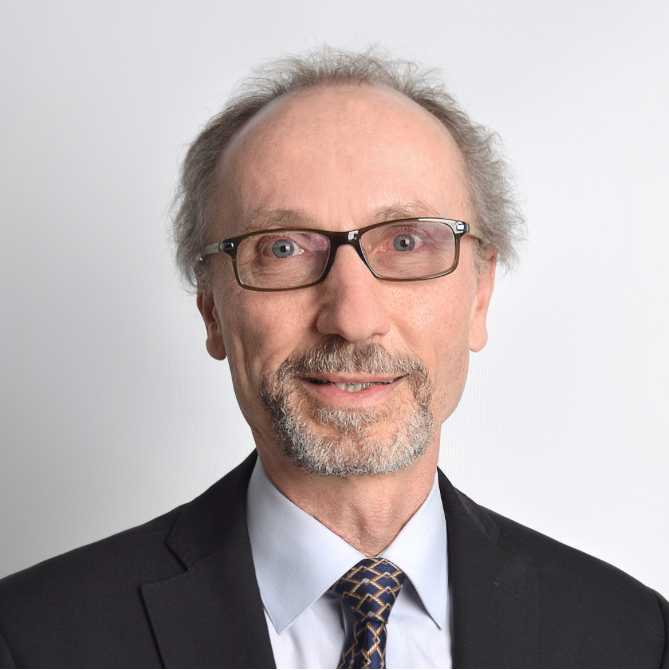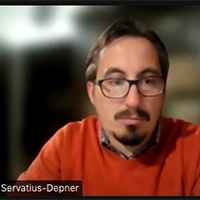18 November, 18:00-20:00
The Variety of Christian Identities. Ecumenical Perspectives
Prof. Dr. Stefan Tobler (ZETO, Sibiu) / Katerina Pekridou (Brussels)
Identity as a Christian community is not always constructed in the same way. It contains not only confessional, but also regional, social and historical elements. A look at ecumenism, in the Protestant-Orthodox comparison, shows us the different approaches to national and global identity, which are sometimes congruent, sometimes divergent.

A quote from
Prof. Dr. Stefan Tobler (ZETO, Sibiu)
“We don’t have to be afraid to take the risk of the ecumenical dialogue upon us! Choosing the encounter rather than closing us up in the fortress of dogmatic and ecclesiological walls, apparently within a clear identity, be it nationalist or cosmopolitan. In a world of growing polarization, we urgently need bridges.”

A quote from
Katerina Pekridou (CEC Brussels)
“A major ecclesiological challenge for the Orthodox Church in the “diaspora” is to overcome the establishment of “national” or “ethnic” jurisdictions. The 2016 Holy and Great Council of the Orthodox Church reiterated the need to return to single jurisdictional territories in accordance with the universal vision of Orthodox ecclesiology. This transcends the borders of any particular nation, race or culture. As the apostle wrote, “There is no longer Jew or Greek, there is no longer slave or free, there is no longer male and female; for all of you are one in Christ Jesus” (Galatians 3:28).”

Summary
by Pfarrer Gerhard Servatius-Depner (ZETO)
A few sentences about the content of the lecture:
The variety of elements in our Christian identity (as Lutherans in Romania) is both obvious and necessary. Our faith is an incarnate faith, is faith-in-a-context. Or should we use another term, instead of the abstract word “identity”? Isn’t it about “feeling at home”? Feeling at home in the church means that I have my place there. My place, my home is my identity. This insight – if I am right – sheds light on the discussion about Nationalism and Cosmopolitism, both very abstract notions, very political notions. Does the strengthening of local cultural traditions and mother tongue within the church lead to nationalism or – at least – to a kind of local patriotism, of narrow perspective of faith with the tendance to be closed and egoistic? Or is it rather an instrument of the mission of the church to invite persons to feel at home? But in the same time: what about the others, the newcomers, the migrants? Can they feel at home, too – together with us? There are no easy answers.”
The identity of Orthodox churches has been shaped by various historical, political and social factors. To understand the complex relationship of church, nation, ethnicity and state in the Orthodox Church, one has to study the gradual process of the establishment of independent Orthodox churches in South-Eastern Europe, as well as the development of parallel ecclesiastical jurisdictions in the “West” in recent decades. This is contrary to Orthodox canon law, and the ancient principle of having one bishop in each city.